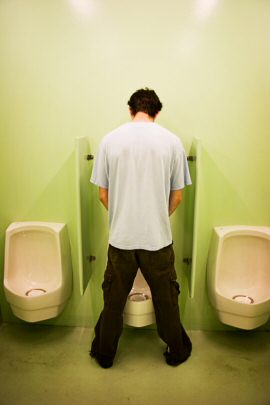 A new study has revealed that the composition of microbial communities colonizing the penis in young men depends upon their circumcision status and patterns of sexual activity. It also shows that urogenital bacterial communities of young men are surprisingly stable and that some of these bacteria are similar to species that colonize and protect healthy young women from STDs. The findings contradict the accepted notion that pre-sexual men do not have bacteria in their urinary tracts.
A new study has revealed that the composition of microbial communities colonizing the penis in young men depends upon their circumcision status and patterns of sexual activity. It also shows that urogenital bacterial communities of young men are surprisingly stable and that some of these bacteria are similar to species that colonize and protect healthy young women from STDs. The findings contradict the accepted notion that pre-sexual men do not have bacteria in their urinary tracts.
"Young men had bacteria that looked similar to those of young healthy women," said Indiana University's David E. Nelson, the principal investigator for the study. "We think that these bacteria may promote genitourinary health in men, just as they do in women. This contradicts previous dogma that only sexually transmitted pathogens colonize the male urethra."
The researchers used advanced sequencing techniques to evaluate bacteria on the head of the penis as well as in the urethra in 18 adolescents younger than 18 years. The researchers will follow these adolescents, along with dozens of others, for several years to determine how the types and amounts of bacteria present change over time.
This study reports that the types of bacteria found on the penis were different than what was found in the urethra, and the bacteria found in circumcised adolescents differed from the bacteria found in the uncircumcised adolescents. These differences may be important in understanding why circumcision helps prevent HIV and other sexually transmitted infections in men.
Interestingly, the study also notes that changes in the bacteria occurred after sexual activity began. "At this point in the research, we are asking 'chicken and egg' questions," Dr. Nelson said. "What comes first, the loss of normal bacteria, making a person more susceptible to sexually transmitted infections or, do you get colonized with other bacteria for some reason and that puts a person more at risk of contracting an STI?"
Related:
Discuss this article in our forum
Penile bacteria and circumcision
Common meds contributing to urinary tract problems
Asian Men Suffering From More Urinary Problems
Source: Indiana University

